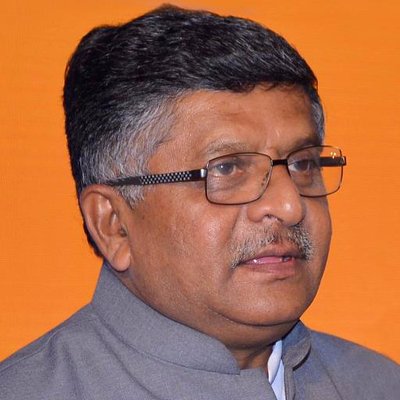Bengaluru, NFAPost: Bengaluru Tech Summit 2020, Asia’s largest tech event has just kicked off today with keynote speeches from the experts in the esteemed presence of elite guests, including our honourable Prime Minister Shri. Narendra Modi, honourable Prime Minister of Australia Mr. Scott Morrison, honourable Vice President of the Swiss Confederation Mr.Guy Parmelin and honourable Chief Minister of Government of Karnataka Shri. B.S. Yediyurappa.
The panel of special guests also included Shri. Ravi Shankar Prasad (honourable Minister of Communications, Electronics & IT and Law & Justice, Government of Karnataka), Dr. C.N. Ashwath Narayan (honourable Deputy Chief Minister and Minister for Higher Education, Electronics IT, Bt and S&T, and Skill Development Government of Karnataka) and Shri. Jagadish Shettar (Honourable Minister of Large and Medium Scale Industries & Public Enterprises, Government of Karnataka).
The event took off with the inauguration by our PM Modi with the theme ‘Next is Now’ where real meets virtual, physical meets digital, local meets global and deeptech meets biotech.
Following the lighting of the lamp by our honourable Chief Minister B.S. Yediyurappa along with the aforementioned dignitaries, our special guests took turns to the address the nation at the inagural session of the virtual tech event in Bengaluru.
Importance of 23rd Tech Summit at Bengaluru
Speaking on the occasion, Shri. Ravi Shankar Prasad had this to say: “I am delighted to be in the 23rd Bangalore Tech Summit. It is not important for me that it is the 23rd Summit… What is important for me is: That this summit is of the city which has played a stellar role in propelling India’s IT story on the global stage.”
“Looking into this department for the last close to 6 years, whenever I analyse the growth of India’s IT roadmap, I always see Bengaluru coming with shining colours and therefore it is an occasion for me to compliment all the leaders and the government, particularly the very facilitating role that Yediyurappaji’s government has played in promoting the IT industry in the country and in the city,” he added.
Covid-19 Induced Challenges
Highlighting the current challenges faced by our people with the onset of Covid-19 Pandemic, Mr. Prasad acknowledged the problems created in the aftermath of this outbreak. Nevertheless, he sounded upbeat about the digital ecosystem which enabled the Government of Karnataka to get this event underway amidst all the hurdles posed by the Covid-19 situation.
Consequently, he explains how he was hard-pressed to relax the work-from-home norms in the light of easing out the work hassles faced by the working class of people amid the pandemic. He further highlights the fact that the work-from-home privilege has been extended permanently for the benefit of the public, besides enabling work-from-anywhere benefit to help promote the cause of Gig economy of India as well as Bengaluru which plays a crucial role in this regard.
Labour Laws of India
Highlighting another key reform, he points out to the change in the labour laws of India wherein a separate chapter on Gig economy has been opened to promote operations as per labour laws concerning in that sector.
Production-Linked Incentives
“Production-Linked Incentive is another key reform that was taken up to promote the cause of the mobile manufacturing industry in India with the idea of encouraging Make in India initiatives. It is now being implemented across 10 new sectors including the Bio-tech sector, the furniture sector, the electronic component sector, the air-conditioning sector, and the telecom sector,” Mr. Prasad explained.
Talking about the investments, he pointed out that major global and national champions have promised to invest close to 11 lakh crores in the coming five years and proposed to manufacture mobile and components in the subcontinent. “Out of the proposed budget, around 7 lakh crores will be used only for the export operations,” he added.
Major Tech Companies Migrating to India
During this Covid-19 crisis, Apple has shifted 9 of its operating units from China to India and the company has already begun manufacturing quality iPhones for India, and also abroad for export.
As Mr. Prasad reiterates in his speech, these transformative changes are invariably influenced by the Digital India initiative. This initiative has empowered ordinary Indians with the power of technology which must be home grown.
In the last five years around Rs. 12 lakh crores ($172 billion) have been released to the bank accounts of poor by the govt. as part of direct-benefit transfer and welfare schemes, besides saving a huge chunk of Rs. 1,70,000 crore ($23 billion) to be pocketed by middlemen and fictitious claimants.
Digital India, Atmanirbhar Bharat and Gig Economy
He sums up saying that the people of India have put enormous trust in Digital India by adopting the new changes of an evolving economy and adds: “The success of Digital India was more because it was encouraging empowerment of ordinary people and that is the future which we all need to understand.”
“Atmanirbhar Bharat does not mean an isolated India. It means India as a major economy of the world becoming a part of the global supply chain wherein India’s innovators, entrepreneurs and political leaders approve development policy initiatives with an overall favourable and positive attitude.
“We are going to connect all 6 lakh bridges of India by optical fibre network as announced by the PM of India on 15 August,and this we shall do in the coming 1,000 days as the work has already started,” he concludes.
Finally, he appeals to the Bengaluru IT community that he is keen to promote India as a big sector of data economy as it is going to drive digital economy and international intercourse of commerce too. With India’s massive digital ecosystem at stake, a data-protection law is also on the cards as it is in the final stage of approval.




